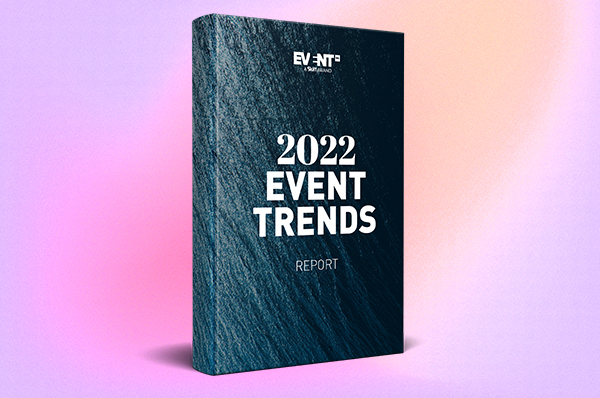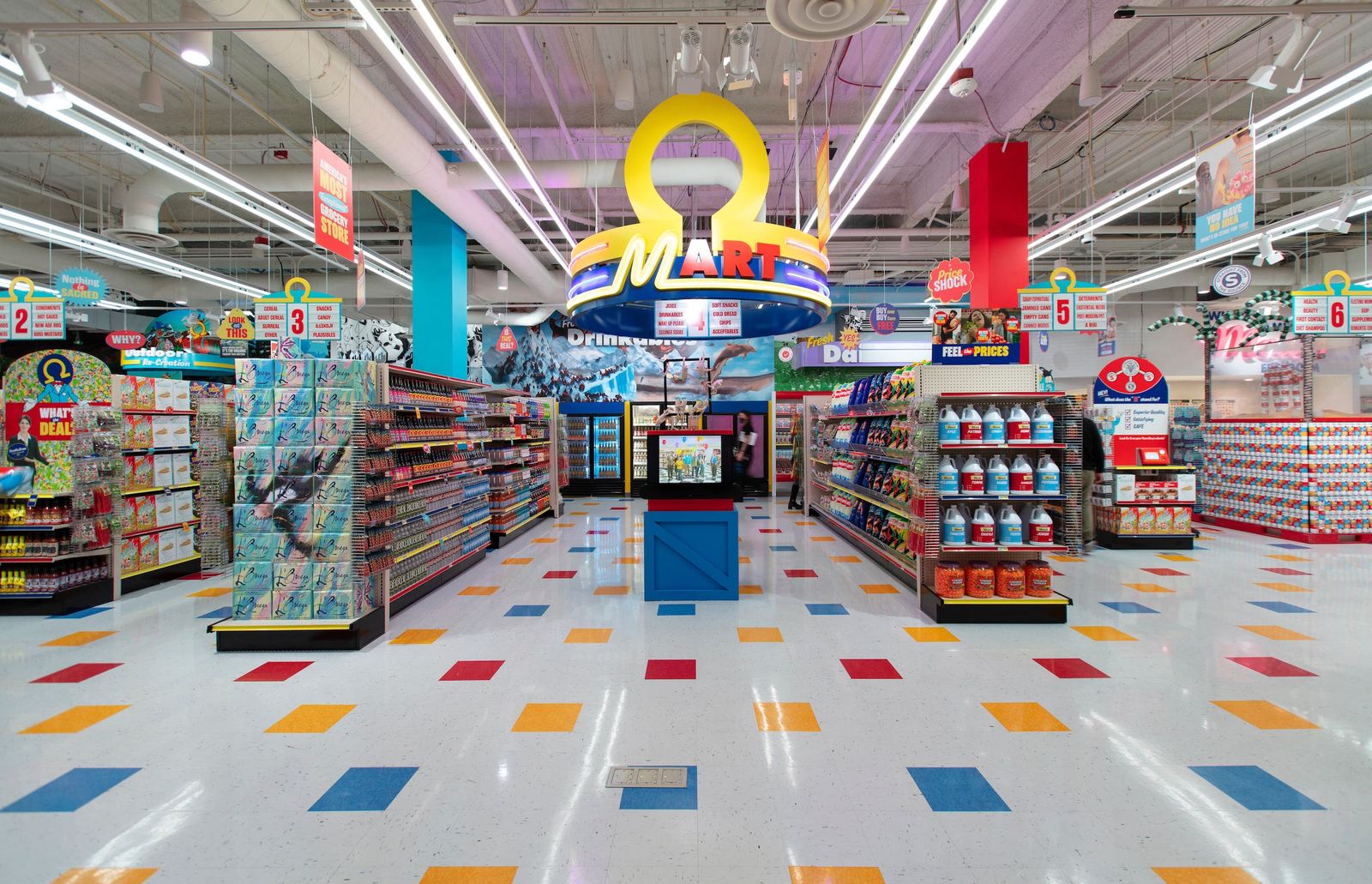Skift Take
With growing uncertainty surrounding events, it helps to stay ahead of the game as you plan for the new year. Here, we explore a summary of the top 11 trends for the events industry in 2022.
At the beginning of 2021, event planners and marketers across the globe felt hopeful for the year to come. However, 2021 has been a tough year for many within the industry. While the sector has seen a return of in-person events, with the discovery of a new Covid variant, event professionals have been dealt a fresh blow as they move into 2022.
But it is not all bad news. With the emergence of innovative trends that include advanced event tech and solutions, planners can better equip themselves to navigate the new year. Recently, EventMB, in partnership with leading industry experts, weighed in on the top 11 trends event planners and marketers can expect to see in 2022.
In this post, we provide a snapshot of the EventMB 2022 Event Trends Summit’s top trends, with key insights into how these trends will shape our sector moving forward.
To dive deeper into each trend, download the 2022 Event Trends Report or watch live presentations recorded with the experts by catching up on the 2022 Event Trends Summit on demand.
Continued Uncertainty
Our hopes of 2022 being smooth sailing and marking a return to some form of normality have been dashed. Despite in-person events taking place globally in 2021, there is an (undeniable) uncertainty that has led to the cancelation of large-scale events for the remainder of this year and next. Omicron is the current coronavirus variant of concern, but this trend is likely to continue well into 2022, if not further.
“As long as this virus keeps circulating, we will see new variants repeatedly pop up in the community,” said Brian Labus, epidemiologist and assistant professor at the University of Nevada-Las Vegas, speaking at the 2022 Event Trends Summit. The good news is that according to Labus, regardless of the profile of future coronavirus variants, the vaccine is expected to work well, and neither hospitalization rates nor death rates are expected to rise dramatically.
Labus alerted the audience to the issues around disparities in vaccine access, with an emphasis on the possibility that areas of the world with low vaccination rates could be hotbeds for new variants. When it comes to events, Labus recommends the use of masks: “[I]f I can put a little piece of fabric over my face and that keeps other people from dying, that seems like a fair trade for me.” His advice to event organizers is to make sure the benefits of hosting an event outweigh the risks.
Perhaps it is best to think of this period as the “in-between time” — the expression used by Kai Hattendorf, CEO at UFI, speaking alongside Labus at the summit. Event organizers have no choice but to accept the current “stop and go” approach to business. But Hattendorf is confident that the global standardization of vaccine records is possible and will be crucial for international events to thrive in the future.
Further, Hattendrof believes in a full economic recovery of the event industry by 2024. Despite dismissing online trade shows as not economically viable, he is confident the technology will play a crucial role in the future of events and encourages organizers to adopt a mix of in-person and online events in their portfolios.
Asynchronous Is In. Traditional Boundaries of Time and Place Are Out.
This trend is all about taking full advantage of the option to spread live events out across different times while also delivering some content on demand. In-person, hybrid, and virtual events can (all) benefit from the flexibility of asynchronous content delivery. Asynchronous event experiences are in their embryonic stage, but they are the future, according to Cathy Song Novelli, SVP Marketing and Communications at Hubilo.
At the EventMB 2022 Event Trends Summit, Song Novelli encouraged event organizers to experiment with asynchronous models. Why not offer attendees in different time zones dedicated live content or create on-demand content for sales kickoffs? “We need to think about events less as ‘one and done’ and more as an evergreen and evolving mission,” said Song Novelli.
Year-Round Event Engagement
It’s not only content that benefits from an on-demand approach. There is also a trend for community building and engagement away from live events days, according to Cvent SVP and CMO Patrick Smith. Crowdsourcing information from attendees online before an event is not only incredibly beneficial to fine-tune event content — it also helps build engaged communities.
The main driver for the rise in year-round event engagement is the ease of use that comes with the latest event technology. Speaking at the EventMB 2022 Event Trends Summit, alongside Smith, was Cvent director of meetings and events, Rachel Andrews. She encouraged event organizers to take advantage of the ease of use and extra impact that comes with offering professional development training pre- and post-event.
Machine Learning Delivers ROI
The acceleration of technological advancement during the Covid pandemic has meant that event technology can now use real machine learning and artificial intelligence, not just sophisticated algorithms. This technology is a “game-changer,” according to MeetingPlay CEO and co-founder Joe Schwinger. Events with more than 50 sessions or 5,000 participants benefit the most, and there is a positive return on investment.
“Machine learning creates personas that are never cemented in concrete,” said Schwinger speaking at the EventMB 2022 Event Trends Summit. This constantly evolving understanding of attendee behavior and needs is more important for ever-larger events with more content. Schwinger pointed out that having the option to serve attendees with content “recommended by your network” can work well.
Rise of Best in Breed Event Tech Stack
While many event tech vendors highlight the benefits of an all-in-one approach, the opposite is also a trend and a growing one, according to SpotMe CEO Pierre Metrailler. Metrailler is clear that clients don’t want all-in-one systems — they prefer to create their tech stack with the best tools for each function. “To deliver great experiences, you’ve got to use the best tool for each element of an event,” said Metrailler.
The latest generation of event tech is more ready than ever to integrate with CRM and Marketing Automation tools. Metrailler admits that event tech vendors should have been open to this before but are now on the right track and in line with SaaS companies across sectors. He also recommends that planners shift their mindset from thinking of events as a standalone tactic to events as one point in a larger marketing journey.
Entering the Golden Age of On-Demand Event Content
With content being created for or resulting from online events, it is only natural that event professionals are finding better and better ways to engage communities with this content. “Customers have become addicted to the content, especially for science and medical conferences, where the science is embodied in recordings,“ said Conference Compass CEO and founder Jelmer van Ast.
Speaking at the EventMB 2022 Event Trends Summit, van Ast sees this trend as a natural evolution for event planners who provide value to internal or external clients through careful management of on-demand content. With content driving the majority of audience engagement at online events, it makes sense to invest in skills and resources around on-demand content.
Insights-Driven Engagement
Regardless of event format, engagement is the metric that can predict the outcome of an event, according to Hopin VP of marketing strategy and events Julius Solaris. “Ultimately, insights-driven decisions lead to more successful programs,” said Solaris for the 2022 Event Trends Summit Report. By tracking event metrics that act as proxies for audience engagement, it is now possible to continually adjust and improve any event to drive more engagement.
Transitioning events to data-rich environments and embracing a hybrid event strategy could revolutionize the playbook of planning events. “As technology continues to innovate, particularly for hybrid and in-person events, insights will be the main ingredient for successfully engaging an audience in 2022, regardless of your event type,” said Solaris.
The Blending of the Hybrid Experience
With the extraordinary advances in event tech over the past 22 months, hybrid events are now almost as easy to navigate as entirely virtual events, at least from an audience perspective. This structure leads to the blending of the hybrid event experience — when audience members can freely move between in-person or virtual engagement using devices, regardless of their physical location.
“Ultimately, the blending of the hybrid event experience means that hosting hybrid events becomes less about servicing two separate audiences and more about merging two types of technologies,” said Socio CMO Andrew Pearson, speaking at the Event 2022 Event Trends Summit.
Escalating Mergers and Acquisitions
There are still many issues that need to be solved by event tech. Because of this, event tech development is unlikely to stall any time soon, and market consolidation will only increase over time as the biggest players look to expand their offerings. “The ten to twenty event tech vendors that are in, or approaching, unicorn status will continue to buy up the others as there is a lot of capital available right now,” says Marco Giberti, founder and CEO at Vesuvio Ventures. He adds that these types of investments are driven by a desire to bring talented people into the fold, take ownership of complementary technology, or gain access to specific markets quickly.
The rise of event technology also means that data is becoming an increasingly valuable commodity, so companies must be clear about their data policies, particularly as investments in this space also mean that large amounts of data change hands. However the new models look, it is clear that communities are at the basis of events, and investors are well aware of this.
Moving Towards the Metaverse
Currently, video games are the closest thing we have to the metaverse. But just because they are games does not mean we should not take them and the technology that powers them seriously. The decision to host events in the metaverse will be a question of whether an immersive online experience is a suitable venue for a specific event. While it holds significant potential for specific use cases, it won’t work for all event types.
For now, the potential event venues of the metaverse could be a little too outlandish for most business needs, and visiting them requires a cumbersome headset that is currently inaccessible to many non-gamers. Brandt Krueger, owner of Event Technology Consulting confirms this line of thinking: “There is no rush or immediate need to pivot to the metaverse.” However, Krueger says that we should also not miss opportunities to explore and learn from our own experiences in the metaverse for the meantime.
Connection and Collaboration for a Hybrid Workforce
Hybrid workforces bring with them new challenges in collaboration, communication, and the maintenance of a healthy company culture for individuals, teams, and whole enterprises.
And while different companies are taking different approaches, most are still trying to figure out what the next stage of hybrid workforces will look like. It will take time to figure out the most effective long-term models.
“Managers think their meetings are great, but participants disagree. Now, meeting design skills are more valuable than ever. There is a substantial shift from content consumption to collaboration,” says Juraj Holub, chief meeting designer at Slido. In the future, “50 Shades of Hybrid” meetings will have the power to level off the playing field, bridge any geographical differences, and create a valuable experience no matter where you’re working from, with multiple time zones creating a greater need for asynchronous communication.
Goodbye 2021
As we move into the new year with a familiar sense of uncertainty, planners can use these top 11 trends to navigate 2022 and deliver up-to-date creative solutions for different event formats.
For a full analysis of each trend with key details and tips on how to make them work for your team, download the 2022 Event Trends Report.
You can also watch live presentations recorded with the experts by catching up on the 2022 Event Trends Summit on-demand.






